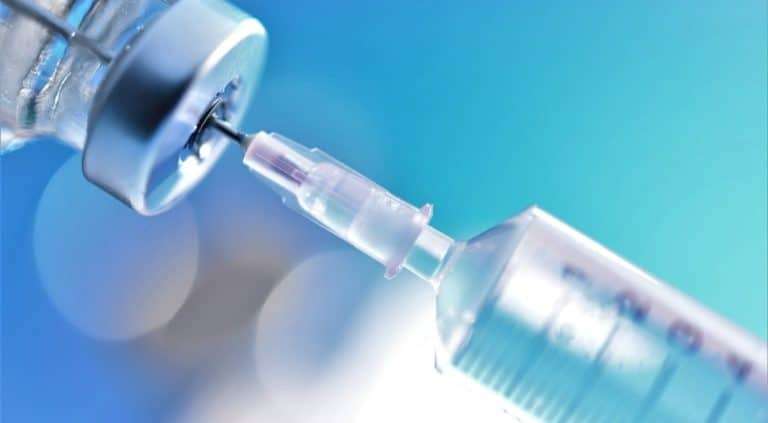Opioid addiction affects roughly 15 million people worldwide. This number does not take into account the millions of friends, family, and loved ones who experience significant impacts from this disease, too. When opioid addiction is occurring within a person’s life, everyone and everything around them can suffer tremendously. The same goes for those who are addicted to alcohol. While opioid addiction is certainly in the forefront of several worldwide conversations, alcoholism affects approximately 25 times more people than opioids, as 380 million people nationwide experience this substance use disorder. In order to combat these ever-growing numbers, a handful of treatments have been developed and implemented in those who have reached out for help for opioid or alcohol addiction. One of the lesser-known forms of treatment for both opioid and alcohol addiction is a shot known as Vivitrol. So, what is a Vivitrol shot and what does it do?
What is a Vivitrol Shot?
So, what exactly is a Vivitrol shot? A Vivitrol shot is an injectable medication that is designed to help reduce cravings for continued opioid use and treat alcohol dependence. It is an extended-release medication that lasts for 30 days, therefore Vivitrol patients only need to get one shot each month for the duration of time they are taking it. Individuals who have incorporated Vivitrol into their overall treatment plan will have their Vivitrol shot administered to them by a healthcare provider in an outpatient setting. Known generically as naltrexone, Vivitrol works to block the effects of opioids and alcohol in the brain so that cravings and dependence can be addressed effectively.
How Does a Vivitrol Shot Work?
What is a Vivitrol shot and how does it work? It might seem simple at first glance, but there is a much more complex process that evolves when Vivitrol is being consumed.
When a Vivitrol shot is administered, this extended-release medication makes its way to the brain, where the majority of its work will be done. Vivitrol binds to the opioid receptors in the brain, which are part of the endogenous system. This system is responsible for feelings of reward and regulating pain, as well as addictive behavior. When opioids or alcohol are being abused, these substances bind the opioid receptors which then send rewarding signals throughout the body. When this action continues to occur through opioid or alcohol abuse, the brain begins to require the presence of either substance in order to keep a person from going into withdrawal. When taking Vivitrol shots, naltrexone binds to the opioids receptors, producing the same signals but not causing harm when doing so.
It is recommended that individuals who take Vivitrol do so for at least three full months, as studies show that it is most effective after that point. Individuals will work with their healthcare providers to determine how long they should be taking Vivitrol, as each and every person is unique and has their own personal needs in recovery.
Side Effects of a Vivitrol Shot
Vivitrol shots are not only extremely effective, but also safe for use. This medication is FDA-approved and has helped countless individuals succeed in their recovery. However, as with any medication, there are some side effects that can develop in those who receive Vivitrol shots.
The most significant potential side effect of a Vivitrol shot is the risk of overdose. Vivitrol works to block the opioid receptors in the brain. Therefore, if someone uses opioids while on Vivitrol, it is possible that they may take more than they normally would in an effort to get the sensation of being high because those receptors are blocked. Additional side effects of the Vivitrol shot can include:
- Nausea
- Dizziness
- Headache
- Vomiting
- Cold symptoms
- Skin rash
- Chest pain
- Depressed mood
Who Should Not Get a Vivitrol Shot?
Just because Vivitrol is an FDA-approved medication does not mean that it is appropriate for everyone who is recovering from alcohol or opioid addiction. You should not get a Vivitrol shot if you are:
- Still drinking alcohol or abusing opioids
- Experiencing withdrawal symptoms
- Allergic to naloxone
Consult with your healthcare provider before you get a Vivitrol shot if you have a history of liver problems, blood conditions, or kidney issues. For female individuals, be sure to tell your provider if you are pregnant, planning on getting pregnant, or breastfeeding before receiving a Vivitrol shot.
Sober Living in Georgia
Living with an alcohol or opioid addiction is extremely painful, especially when the addiction continues. The most important thing a person can do when dealing with this disease is to ask for help. Simply by reaching out, a person can take one vital step towards recovery and away from the confines of active addiction.
If you are struggling with an addiction to opioids or alcohol, do not waste any more time. Contact us right now to get started on your own journey towards recovery. Our team of compassionate, experienced professionals is dedicated to helping you heal from addiction mentally, emotionally, physically, and spiritually and our treatment programming offers Vivitrol education and administration.
Do not hesitate. Call us at 470.391.4603 to speak with one of our admissions counselors and to get started on your new tomorrow.


Add a Comment